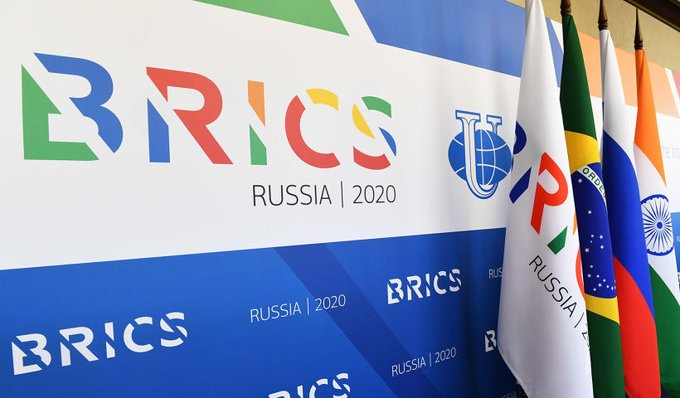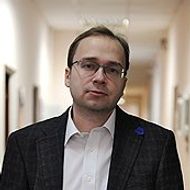HSE University Hosts Roundtable Discussion on Anti-Corruption Education in BRICS Countries

Representatives of governmental bodies and international organizations joined BRICS experts to discuss anti-corruption education at a roundtable that took place on December 1 as a videoconference. Representatives of HSE university participated in the event organization and the discussion itself.
The discussion was initiated by Russia, since anti-corruption education is one of the priorities of the Russian BRICS Chairmanship in 2020. The event was held on the occasion of International Anti-Corruption Day.
Andrey Avetisyan, Ambassador-at-Large for the International Anti-Corruption Cooperation of the Russian Ministry of Foreign Affairs and Chair of the BRICS Working Group on Anti-Corruption Cooperation, said that the discussion would focus on three elements of anti-corruption education: raising public awareness about corruption; anti-corruption education at universities; and training sessions for those who fight corruption professionally.
‘We have invited you not only to share stories of success, but also to talk about the problems you may face,’ Andrey Avetisyan said. He also mentioned that the discussion aims to find common solutions and suggest measures for mutual support, to share ideas and recommendations on national policy elaboration, as well as successful anti-corruption practices in BRICS countries.
The ambassador also emphasized the role of HSE University, which has provided expert support for the Russian delegation in the BRICS Working Group on Anti-Corruption Cooperation for the first time. ‘We have invited a team from the HSE Anti-Corruption Centre, Russia’s leading institution on anti-corruption research and professional education. I’d like to thank Alexey Konov, Director of the Centre, and his team for their support in organizing the event,’ Andrey Avetisyan said.
The HSE Anti-Corruption Centre specializes in teaching and research in anti-corruption education. Its educational programmes provide continuing education in anti-corruption enforcement, both on-site and online. The Centre participates in the development of national anti-corruption legislation, provides official guidance, carries out independent research, and prepares analytical materials for governmental bodies and other organizations.
As part of its international activities, the Centre provides expert support to Russian delegations in the G20 Anti-Corruption Working Group and a number of other international anti-corruption forums in addition to cooperating with specialized educational and expert centres abroad. The Director of the Centre is the Chairman of the Board of Governors of the International Anti-Corruption Academy. One of the Centre’s tasks is developing electronic databases and online consulting services.
Participants of the roundtable discussion came from key institutions and expert centres that provide anti-corruption education in BRICS countries, including the Academy of Discipline Inspection and Supervision (China), the National School of Government (South Africa), anti-corruption bodies of Brazil and India, as well as the United Nations Office on Drugs and Crime and the International Anti-Corruption Academy.
The discussion was organized in three sessions. The session on raising public awareness about corruption was moderated by Vijayendra Bidari, Deputy Director of the International Police Cooperation Unit, Central Bureau of Investigation, India. The session on anti-corruption education in universities was moderated by Dr. Xiumei Wang, Professor of Law, Beijing Normal University, China. The session on training for anti-corruption practitioners and officials was moderated by Alexey Konov, Director of the HSE Anti-Corruption Centre.

Alexey Konov
The roundtable discussion opens significant opportunities for HSE’s collaboration with relevant institutions in BRICS countries, including the implementation of joint educational and research projects. It is the first step towards the establishment of mechanisms for regular BRICS countries’ collaboration in anti-corruption education.
As a result of the discussion, a focused strategic document by the Russian Chairmanship in the BRICS Working Group on Anti-Corruption Cooperation will be prepared. The organizers say that it will reflect the common challenges and opportunities for strengthening BRICS cooperation in the field identified in the course of the event.
See also:
HSE’s Education Observatory Establishes Research Network Across All BRICS Countries
The International Education Observatory initiative, launched by HSE University to focus on expert evaluation, analytics, and joint scientific research, has successfully completed the formation of a research network across all BRICS nations. South Africa was the final link, with the University of Pretoria and the University of the Witwatersrand joining experts from Russia, China, India, and Brazil.
The Future Through the Eyes of Young Scientists
A delegation of teachers and students from the HSE Campus in Nizhny Novgorod participated in the IV Young Scientists Congress and the IX BRICS Young Scientists Forum held in Sochi. These two key events of the Russian Decade of Science and Technology brought together representatives of the academic and university community, state corporations, private businesses, and public organisations to envision the future of Russian science through the lens of the younger generation.
‘We Need Our Own AI Models Trained on Local Data’
The digitalisation of the economy and the rapid development of artificial intelligence (AI) technologies pose new challenges for antitrust authorities worldwide. Major players in the AI market, equipped with significant resources, can block new entrants and set anti-competitive prices. Additionally, the use of AI raises increasingly complex ethical questions for which the global community has yet to develop answers. These and other issues were discussed at the Third BRICS+ Digital Competition Forum.
‘It Is Hard to Imagine High-Level Interpretation Being Entrusted to a Machine’
In 2024, Russia chairs BRICS, an international organisation comprising nine countries. Throughout the year, dozens of forums, working group meetings, and BRICS sessions took place across various Russian cities. As an interpreter, Ksenia Prosyukova, Associate Professor at the HSE School of Foreign Languages and Candidate of Science (PhD) in Pedagogy, participated in several BRICS events. In an interview, she discussed the personal responsibility of working at high-level events, the challenges and prospects of her profession, and how HSE University trains in-demand translators.
BRICS Representatives Discuss the Development of Statistics in Member Countries
The significance of statistics in today’s digital age has reached a new level. Many decisions at government and business levels are based on data analysis. However, there is a mixed perception of official statistics, which negatively affects trust in public policies. The heads of BRICS statistical agencies discussed this issue and ways to address it at a forum in Kazan, where a representative from HSE University also participated in the event.
‘Geographical Distance No Longer a Problem’: ISSEK Fosters Cooperation with Think Tanks in BRICS Countries
In September, the HSE Institute for Statistical Studies and Economics of Knowledge hosted an international working meeting with representatives from Brazilian, Egyptian, and Indian think tanks. The participants discussed opportunities for cooperation, including joint surveys, comparative studies, databases, and publications on foresight, technology, and innovation. It was also decided to draft a multilateral agreement to establish the BRICS Foresight Association.
HSE Experts Take Part in the First International Workshop on Technological Sustainability of BRICS
On September 19–20, Skoltech hosted the First International Workshop on Technological Sustainability of BRICS: University-Industry Partnerships, organised jointly with HSE University Human Capital Multidisciplinary Research Center. The meeting was held as part of the BRICS working group on technology foresight and science and technology studies.
HSE Researchers to Develop BRICS Exchange System Together with Chinese Experts
HSE University International BRICS Competition Law and Policy Centre and the Competition Policy and Assessment Centre founded by the State Administration for Market Regulation of China signed a cooperation agreement. The parties agreed to come up with proposals for the development of exchange trade in goods and raw materials between Russia, China, and the BRICS countries.
‘What Makes BRICS Effective Is Its Diversity’: HSE University Representatives Begin Work at EEF
HSE University Vice Rector Victoria Panova spoke at the Eastern Economic Forum (EEF 2024) that began in Vladivostok. The topic of her speech was the expansion of BRICS.
'Staying Open to New Challenges and Opportunities Is Crucial'
The Tenth BRICS Youth Summit was held in Ulyanovsk from July 22 to 26. The event was attended by more than 200 early-career professionals from Brazil, India, China, Egypt, Iran, the United Arab Emirates, Saudi Arabia, Ethiopia, South Africa, and Russian regions. Participants gathered to discuss current global issues and explore opportunities for youth collaboration. Students of HSE University who attended the Youth Summit shared their impressions with HSE University Life.


